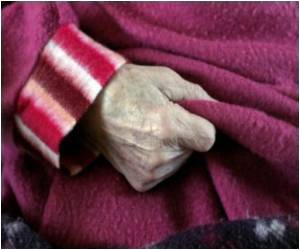Reducing use of sedatives (RedUSe) intervention can reduce medication overuse in residential aged care facilities where people are prescribed with increased intake of certain psychotropic medications to manage sleep disturbance, anxiety, depression and psychological symptoms of dementia.

‘Overuse of certain psychotropic medications in residential aged care facilities to manage problems related to sleep disturbance, anxiety, depression and psychological symptoms of dementia can be reduced by RedUSe (reducing use of sedatives) intervention.’





Dr. Westbury's research initially showed around two-thirds of RACF residents were prescribed psychotropic medications to manage high rates of sleep disturbance, anxiety, depression and the behavioral and psychological symptoms of dementia."For at least two decades, concerns have been raised about inappropriate psychotropic prescribing in Australian residential aged care facilities, due to their modest therapeutic benefits and high risks," Dr. Westbury said.
"These medications aren't effective in many cases and can lead to many side effects including a higher risk of falls, pneumonia, and stroke."
After an initial trial in Tasmania, Dr. Westbury introduced The RedUSe multi-strategic intervention nationally to more than 12,000 aged care residents.
During the project, each RACF's sedative medication use was measured initially, then at three months and finally at six months. Nursing and care staff attended training sessions on psychotropic medication and residents taking these medicines were reviewed by nursing staff, pharmacists and their GP.
Advertisement
The use of sedating antidepressants and prescribing of psychotropic medication on an 'as needed' basis had also increased.
"Under RedUSe, approximately 40% of residents had their antipsychotic or benzodiazepine medication ceased completely or their dosage reduced," Dr. Westbury said.
"Furthermore, substitution to sedating antidepressants did not occur, and the issuing on an 'as needed' basis of antipsychotics and benzodiazepines declined significantly."
RedUSe aims to ensure that sedative medication is used appropriately and is reviewed frequently in the aged care setting through strategies including education of nursing staff, promotion of evidence-based guidelines, and drug audits of aged care home medication use.
Dr. Westbury said she had received an overwhelmingly positive response to the project from the staff at RACFs around the country.
"We were approached by more than 300 RACFS from around Australia to be a part of this project. They were interested in any staff education or project developed to address this issue," she said.
The key recommendations of Dr. Westbury's research included making RedUSe available to all Australian RACFs in the future and for the program to be offered as part of the Federally funded 'Quality Use of Medicines' program for community pharmacists.
The research also recommended the provision of national training for RACF staff to manage behavioral and psychological symptoms of dementia and in alternatives to medication for the treatment of these symptoms.
Dr. Westbury is a researcher at the University of Tasmania's College of Health and Medicine, Wicking Dementia Research and Education Centre.
Source-Eurekalert










